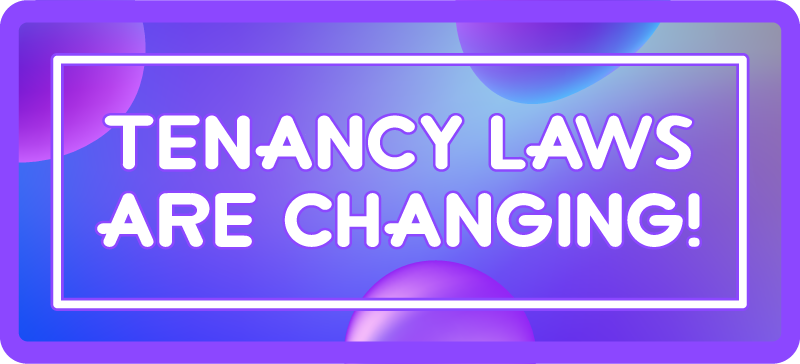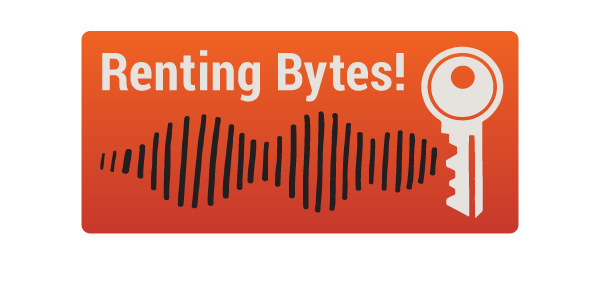Utilities
As a tenant you have rights under the Residential Tenancies Act 2010 and Residential Tenancies Regulation 2019. This factsheet summarises the law in NSW about utility charges and connections – such as water, electricity, gas, oil, and internet, including the rules about separate metering and water efficiency.
Who pays for electricity, gas (non-bottled) and oil?
The law states that the landlord is responsible for the initial installation and connection to an electricity, (non-bottled) gas and/or oil supply service.
The legislation gives effect to the user pays system, meaning the tenant is usually required to pay for what they consume: all charges for the supply of electricity (or oil) and gas.
However, if these utilities are not separately metered (see below), for example in shared premises with other people in a separate dwelling (e.g. granny flat) or in another room, the landlord must pay all charges.
Who pays for water?
The tenant is only required to pay for water usage charges if these conditions are met:
- the premises are separately metered (see below); and
- the premises contain water efficiency measures, which are legally prescribed (see below); and
- the tenant is given a copy of the of bill (or other evidence) setting out the water usage charges; and given not less than 21 days to pay, and the request by the landlord is within 3 months of the issue of the bill by the water supply authority.
If any one of these conditions is not met, the tenant does not have to pay.
What is “separately metered”?
The law defines “separately metered” as having a meter that:
a) satisfies an Australian Standard (if any) as prescribed by Regulations; and
b) has been installed in accordance with manufacturer’s instructions or industry practice; and
c) measures the quantity of
- electricity (National Meter Identifier - NMI - assigned),
- gas (delivery point identifier or Meter Installation Registration Number - MIRN - assigned),
[NMI, MIRN and delivery point identifier – all within the meaning of the National Energy Retail Law NSW] - water, or oil,
that is supplied to, or used at, only those premises; and
d) enables a separate bill to be issued.
For gas, if the landlord does not provide any gas appliances in the premises and you do not use gas, then the landlord will have to pay for all gas supply charges (i.e. availability charge).
If your premises is in an embedded electricity or gas network (commonly found in strata schemes or high-density apartment buildings), and your meter does not have identifiers (NMI, MIRN, delivery point identifier), you will still need to pay for the utilities you consume, if you have a meter that:
a) does not require those identifiers to be assigned; and
b) measures supply and use to only your premises (properly installed, enables separate bill and meets the Australian Standard, if any).
For social housing tenants in buildings with centralised hot water system (heated by gas), the rules are different. You will be required to pay for gas, as calculated by individual hot water meter readings.
The prescribed water efficiency measures
Currently, showerheads and some taps in the rented premises are required to have water efficiency measures, and the legally prescribed standards are:
- Showerheads: a flow-rate of no more than 9 litres a minute
- Taps for kitchen sinks or bathroom hand basins: a flow-rate of no more than 9 litres a minute.
The landlord may have installed devices (such as aerators or regulators) to meet this requirement. A simple test is to turn the water fully on and use a container and stopwatch to check the flow. Otherwise, products with a three star label (in accordance with the Water Efficiency Labelling and Standards - WELS - scheme) tend to indicate that the prescribed standards are met.
The landlord is also required to check & ensure that there are no leaking taps, toilets or showerheads at the start of the tenancy.
If there are any leaks in any of the appliances during the term of the tenancy, the tenant should notify (also in writing) the landlord and request that the leak be repaired. (Also see Factsheet 06: Repairs and maintenance).
For social housing tenants, water usage charges are determined by Ministerial Guidelines. You can ask your landlord of a copy of their policy.
Unpaid water charges
If Sydney Water, Hunter Water or a local council supply the water and the landlord fails to pay charges as required, you may be able to pay the outstanding charges in lieu of rent. This is required in order to continue supply of water to the premises. Receipts from certain suppliers count as rent receipts so check with your supplier. (See sample letter Unpaid water charges – Sydney).
Who pays for telephone, television and internet connections?
A landlord is not currently required to provide telephone, television or internet connections with the premises.
Existing facilities
However, existing sockets are facilities provided with the premises for use of the tenant. As such, the landlord is obliged to ensure such facilities are in reasonable condition and to maintain them, unless this is specifically excluded in the tenancy agreement.
In the case Varghese v Liang & Huang (Tenancy) [2008] NSWCTTT 973, the premises had a phone socket. The tenant assumed there was a working landline but there was not. The Tribunal found that the landlord is responsible for ensuring a landline is available unless there is a specific exclusion in the tenancy agreement.
At the start of the tenancy, note on the condition report whether or not socket/s work. If they do not, negotiate with the landlord/agent about having them fixed. Be sure to get any agreement in writing.
New connections
If you want a new connection installed you must have the landlord’s consent. Installation of a carriage service for connecting a phone line or internet is an alteration that is of a ‘minor nature’, as prescribed by the Regulations. This means the landlord/agent cannot unreasonably refuse consent (see the NSW Fair Trading factsheet ‘Asking to make an alteration’ at fairtrading.nsw.gov.au).
You will have to pay for installation (although the landlord may agree to pay or contribute to the cost) and any repairs to connections you have installed.
Bottled gas, water tanks, septic tanks
For properties using bottled gas, water tanks, and septic tanks, the rules are:
Bottled gas
The landlord pays the costs and charges (such as installation or initial connection) and supply or hire of gas bottles at the start of the tenancy. You then pay for all charges after that.
Water tanks
Where water is the only form of supply, the landlord must ensure a tank has water in it at the start of your tenancy. Note the water level on the condition report. You are responsible for refilling the tank. The landlord is responsible for the upkeep, as well as associated pumps and electrical systems. Regularly check they are in working order and report (also in writing) any problems to the landlord/agent.
Septic tanks
You are responsible for getting the septic tank pumped out for your usage only. You should note the level of the septic tank in the ingoing condition report, and if the tank becomes full (not solely from your usage), negotiate with your landlord to share the costs of the pump out.
The Office of Local Government in 2000 issued a Guide called: The Easy Septic Guide (available online) which contains useful information on how to manage the septic system safely.
Landlord must not interfere with supply
A landlord/agent who interferes (not to do repairs or maintenance) with the supply of gas, electricity, water, telecommunications or other services to the premises is in breach of your tenancy agreement. You can apply to the Tribunal for orders that the landlord/agent stop such breach and/or restore supply, as well as compensation. You need to apply within 3 months of the breach. You can also apply for rent reduction for the time you were without the service, but you have to apply before the end of the tenancy. Contact your local Tenants’ Advice and Advocacy Service for help. See also Factsheet 11: NSW Civil and Administrative Tribunal).
Repairs to supply of utilities
The landlord is responsible for repairs & maintenance of utility connections/services within the boundary of the property.
Normally if there is a problem with supply, for instance there is a gas leak, then the first step is to ring the provider and report it. They will then check where the problem is – if it is outside the boundary of the premises then the provider is responsible for the repairs. Where the problem is within the premises you need to contact the landlord/agent in writing. If it is urgent you can phone first but you should record the details of any conversations and send them a letter. You may decide to arrange for repairs to be done yourself, but then you need to negotiate a written agreement with the landlord/agent in advance. (Also see Factsheet 06: Repairs and maintenance).
Disputes over bills
If there is dispute over payment of an account and the supplier threatens disconnection, consider writing to them to explain the situation. Include supporting documentation. The following bodies may be of help:
- Energy and Water Ombudsman NSW: phone 1800 246 545, ewon.com.au
- Telecommunications Industry Ombudsman: phone 1800 062 058, tio.com.au
See also
- Factsheet 06: Repairs and maintenance
- Tips: Negotiating with the landlord
- New Renters Kit
- Embedded networks – news and analysis
- Podcast episodes: Cracks Emerge, Negotiation for renters.
- Gas Safety and Electrical Safety – Health, safety and security in a rental property (NSW Fair Trading)
Factsheet updated October 2023
This factsheet is intended as a guide to the law and should not be used as a substitute for legal advice. It applies to people who live in, or are affected by, the law as it applies in New South Wales, Australia. © Tenants’ Union of NSW.




